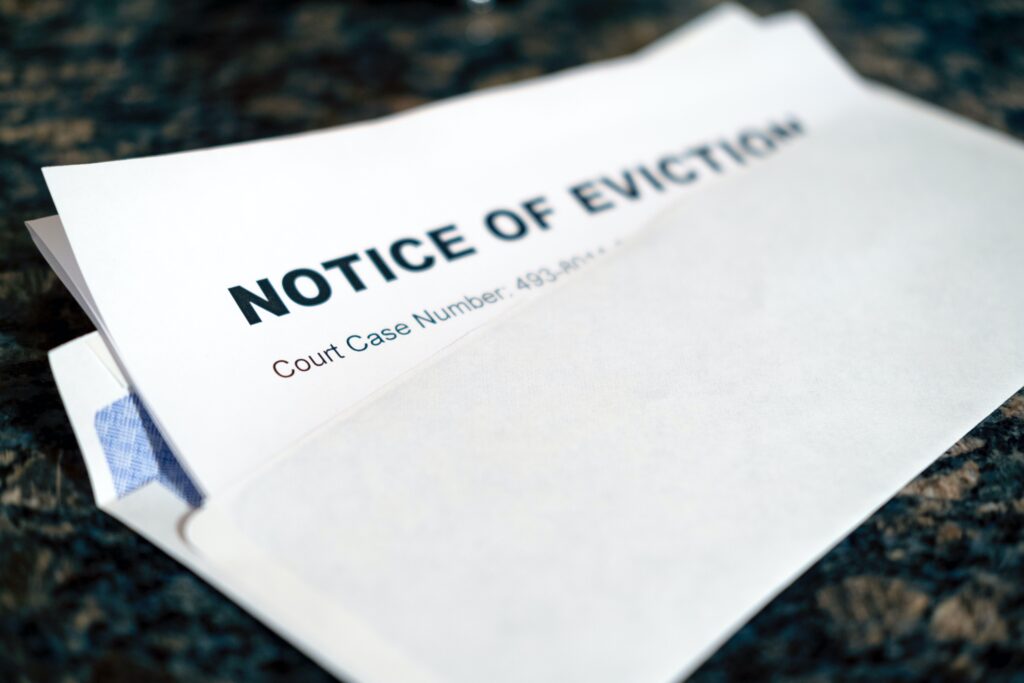Owning an empty property can feel like a financial millstone, with council tax piling on while you’re sorting out probate, renovations, or a sale. The costs can spiral quickly.
The good news? There are legitimate ways to reduce – or even dodge – council tax on an empty property.
In this guide, we’ll walk you through what counts as an empty property, the exemptions and discounts you might qualify for, and practical strategies to minimise or eliminate your council tax bill. We’ll also flag common pitfalls to avoid and explain how services like Property Rescue can ease the burden.
Understanding Council Tax on Empty Properties
Standard Rules and Responsibilities
So, what’s an “empty property” in the eyes of your local council?
An empty property is one that’s unoccupied and substantially unfurnished. But there’s nuance here:
- Empty and unfurnished: Discounts or exemptions, depend on your council’s policies. Not every council offers discounts and not all discounts are the same.
- Second homes: Usually furnished and unoccupied by choice. These rarely qualify for discounts.
- Long-term empties: Properties vacant for over two years often face hefty council tax premiums.
Who pays the bill?
Council tax falls to the property owner if it’s empty – even if no one’s living there. For rentals, liability shifts from the tenant to the landlord once the tenancy ends.
Why Councils Charge More for Empty Homes
Councils aren’t keen on vacant properties because the UK’s housing shortage is acute, and empty homes could resolve part of the problem if they were occupied. In addition,it’s quite simply a lucrative opportunity for local councils to generate more revenue.
How much extra could you face?
As of Jan 2026 premiums typically apply as follows:
- After 2 years empty: +100% premium (double the standard rate).
- After 5 years empty: +200% premium (triple the standard rate).
- After 10 years empty: +300% premium (quadruple the standard rate).
For example, a £1,800 annual council tax bill could jump to £3,600 after two years, £5,400 after five, or £7,200 after ten.
Discounts, Exemptions, and Reliefs You Might Qualify For
Short-Term Empty Property Discounts
Some councils offer discounts for properties empty for a short period, typically up to six months. Policies vary widely:
- Camden might grant one month at 100% discount.
- Cotswold could offer six months at 25% off.
- Some councils charge full rates from day one.
Every council is different. Check your council’s policy via this council finder tool. In Wales, you can use this site.
Major Repairs Exemption (Uninhabitable Properties)
If your property’s undergoing major structural repairs, you might qualify for a full exemption, often called a “Class A” exemption.
To qualify:
- The property must be uninhabitable (e.g., no roof, missing walls, or unsafe conditions – not just needing a repaint).
- Works must be structural, like rewiring or rebuilding.
- Councils typically require:
- Photos of the property’s condition.
- Surveyor reports or contractor estimates.
- A timeline for completion.
Some councils offer up to 12 months at 50% discount post-exemption if works continue. Always apply with evidence – don’t assume it’s automatic.
Probate Exemption
If a property’s empty due to the owner’s passing, you may qualify for a “Class F” exemption.
The rules:
- Exemption applies from the date of death until probate is granted, plus up to six months after.
- After this, standard rates (or premiums) may apply.
- You’ll need to provide:
- A death certificate.
- A copy of the will or probate documents.
- Evidence you’re the executor or administrator.
This exemption is often overlooked, especially when probate drags on. Act fast to claim it.
Occupied by a Student or Armed Forces Member
If the last resident was:
- A full-time student, or
- A member of the armed forces posted elsewhere,
you might qualify for a full exemption (e.g., “Class M” for students or “Class O” for armed forces). You must apply with proof, like a student certificate or military posting order.
Empty Annexe or Granny Flat Exemption
A self-contained annexe or granny flat may be exempt under “Class T” if:
- It’s unoccupied and unfurnished.
- It can’t be let separately due to planning restrictions.
Check with your council and provide planning documents to confirm eligibility.
Other Exemptions
Additional exemptions may apply if the property is:
- Repossessed: Taken back by a mortgage lender (Class B).
- Used for charitable purposes: Owned by a charity and recently vacated (Class C).
- Left empty due to care needs: The owner is in a care home or hospital long-term (Class I or J).
Visit here for a full list of exemptions.
Discretionary Discounts and Case-by-Case Reviews
Even without a formal exemption, councils can reduce or defer your bill based on personal circumstances, under Section 13A of the Local Government Finance Act 1992.
Possible grounds:
- Financial hardship.
- Probate or legal delays in selling.
- Health or family issues.
- Damage from fire, flood, or natural disasters.
Tips to strengthen your case:
- Submit written evidence (e.g., solicitor letters, estate agent correspondence, or contractor quotes).
- Include photos and timelines.
- Explain the financial impact clearly.
It’s not guaranteed, but many councils have hardship policies. Engage early and stay cooperative.
How to Legally Avoid (or Delay) Council Tax When a Property Is Empty
You can’t just ignore a council tax bill on an empty property – it’ll catch up with you. But there are smart, legal ways to minimise or avoid it.
Sell the Property Quickly
Selling is the ultimate way to eliminate council tax liability.
Why?
The longer a property sits there unoccupied, the more council tax is owed by the owner.
Use Property Guardians
Property guardian schemes, like those from Live-in Guardians or Dot Dot Dot, place vetted occupiers in empty homes. They keep the property secure, deter squatters, and can take on responsibility for the council tax bill.
Key points:
- Guardians to genuinely live there – not just stage the property.
- You’ll need a contract and council approval to ensure it counts as “occupied.”
This works well if need someone temporarily, because for longer term solution, it might just make more sense to just rent out the property.
Convert or Repurpose the Property
Changing the property’s use can shift or eliminate council tax liability:
- Convert to commercial use: Business rates apply instead, which may qualify for relief (e.g., 100% relief for small businesses under certain conditions).
- Merge with another dwelling: Combining properties (e.g., an annexe with the main house) results in a single council tax bill.
This could require planning permission, so consult your council’s planning department.
Temporary Letting and rentals
If the property is a standard rental property, it’s the person who occupies the property that’s responsible for council tax.
But what about short term holiday lets like AirBnB?
It’s not practical to charge guests council tax, so in practice, many landlords pay it. However, you have the ability to register a holiday let for Business Rates. Switching a property from council tax to Business Rates comes with a new set of rules, discounts and exemptions. For many holiday lets, the Business Rates payment is a lot less than the equivalent council tax payment, and in many cases it results in no payment needing to be paid what so ever, due to small business discounts.
To qualify for Business Rates, you first need to have your property Evaluated by the VOA. Only once you have the valuation will the local council be able to switch the property over to Business Rates. To maintain Business rates, you’ll need to ensure the property meets a minimum booking occupancy rate of 70 days per year.
Donate to a Charity
If the property is donated to a registered charity for their use, it may qualify for a “Class C” exemption. Contact charities like Shelter to explore options. You’ll need legal advice to formalise the donation.
Avoiding Common Mistakes and Misconceptions
Leaving the Property Empty and Hoping for the Best
This is a recipe for disaster.
Why?
- Premiums increase the longer a property stays empty.
- Vacant homes attract vandalism or squatters.
- Bills pile up – council tax, insurance, utilities, and repairs.
Councils monitor empty properties and can enforce action if they become problematic. Don’t assume you’ll fly under the radar.
Misunderstanding Probate or Renovation Rules
Exemptions aren’t automatic. Common errors include:
- Probate: Assuming exemption applies indefinitely. It ends six months after probate is granted.
- Renovations: Thinking minor upgrades (e.g., new carpets) qualify. Nope. Only major structural works count. Basically you’ll need to show that the property was uninhabitable prior to starting renovations.
Without evidence like surveyor reports or contractor quotes, your application will likely be rejected.
Assuming Discounts Apply Automatically
Councils won’t know your property’s empty unless you tell them. You must:
- Notify your council promptly.
- Submit a signed declaration.
- Provide proof of vacancy (e.g., photos, utility readings).
- Include a timeline of why and when the property became empty.
Without this, you’ll be billed at the full rate.
What Happens If You Don’t Pay Council Tax on an Empty Property?
Ignoring your council tax bill is a bad move. It escalates quickly.
Legal Enforcement and Penalties
Here’s how it typically unfolds:
- Reminder notice: 7 days to pay overdue amounts.
- Final notice: Lose the right to pay in instalments; the full year’s tax becomes due.
- Court summons: A magistrates’ court can issue a liability order, adding legal costs.
- Enforcement agents (bailiffs): They may seize goods or enter the property.
- Charging order: The council secures the debt against the property.
- Forced sale: In extreme cases, the council can apply to force a sale.
Legal action racks up costs and can harm your credit score.
Risk of Backdated Charges
Councils can backdate premiums if a property’s been empty for years without notification. For example, a property empty since 2021 could face a £5,400 annual bill (based on a £1,800 base) if discovered in 2025.
Avoiding Council Tax Isn’t About Loopholes – It’s About Action
Here’s the deal.
Legitimate exemptions and discounts exist for empty properties – whether due to probate, major repairs, or hardship.
But they’re not handed out on a platter.
With premiums hitting up to 300% after ten years, doing nothing is the costliest option. Whether you apply for relief, use guardians, let the property, or sell fast with Property Rescue, acting now saves you money.
Don’t let the bills stack up. Take control today.








